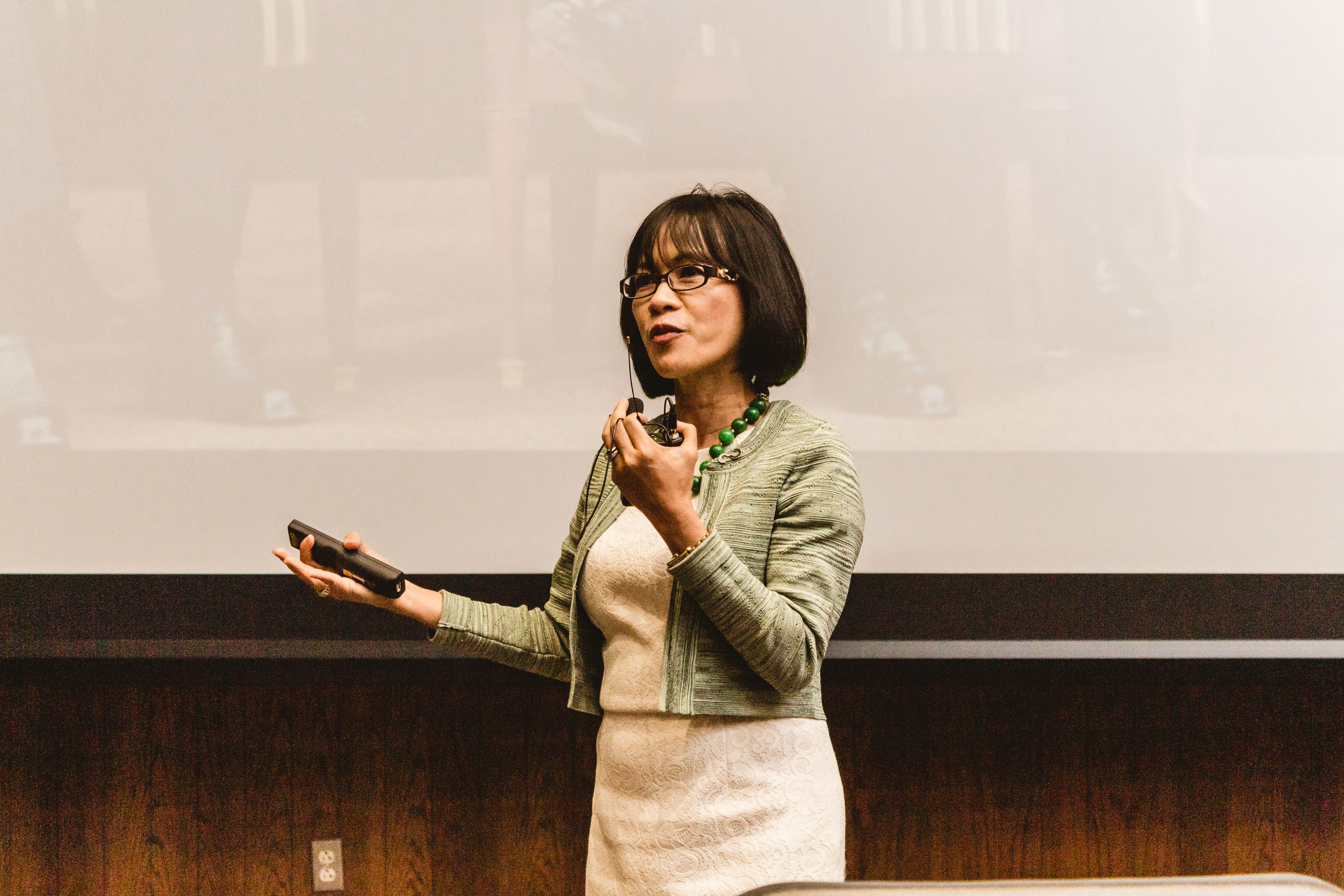
“How many of you were alive during the ‘80s?” asked UVU President Dr. Astrid Tuminez during her post-screening discussion of Meeting Gorbachev (2018) on Wednesday, Oct 30th. “Oh good!” she exclaimed after almost half of the audience raised their hands. Tuminez graduated from BYU and continued her studies in International Relations and the history of Russia at Harvard. While at Harvard, she participated in a group interested in strengthening democratic institutions around the world, and for a time she was stationed in Moscow. Over the years, Tuminez interviewed Mikhail Gorbachev four times, even more than Werner Herzog, the director of the film.
In the late ‘80s and early 90s, there was an intense sense in the Soviet Union that the country and nation were falling apart, according to Tuminez. The documentary engages the big history, but focuses on the portrait of a single leader. Gorbachev is, of course, recognized as one of the pivotal leaders who put an end to the Cold War, but the film goes beyond the facts by humanizing him, particularly with a touching section about Gorbachev’s relationship with his wife, a partnership that was amazingly close and loving. The film paints Gorbachev as a person who was genuinely interested in helping people through the benefits of both democracy and socialism.
Tuminez was there during the attempted military coup in Moscow when Gorbachev was vacationing in Crimea and military leaders along with hardliners came to take the city. Their attempt was unsuccessful as the people rose up to stop the troops. Boris Yeltsin, the man who displaced Gorbachev and became the new leader of Russia, used the opportunity to climb on one of the abandoned tanks and paint himself as a man of the people. Not long after, Yeltsin and others held a secret meeting to disband the USSR in a clear grab for power. Gorbachev still regrets the end of the USSR to this day. He says in the film that it was too quick and was driven by people who were too hasty.
Tuminez researches the history of the dissolution of the Soviet Union and its aftermath. When state-owned companies became privatized, the wealthy and power-hungry used every means necessary to gain even more power. They would trick people into selling stock, something most people did not yet understand the value of or kill anyone who got in their way. Overnight, the wealthy were able to gain massive amounts of commercial and political capital. Democracy and market economies are not natural, nor are they easy to maintain. The United States, according to Tuminez, suffered from significant hubris with the fall of the Soviet Union and believed that it held all the answers to societal issues. Very soon it became apparent that it did not.
Democracies are easy to exploit. This was especially true of Russia after the Soviet Union fell. Tuminez pointed out that many dictators are actually democratically elected including Adolf Hitler, Vladimir Putin, and others. A democracy needs to be carefully monitored and cared for. It is not a natural state of existence. Tuminez said, “I think democracy is always possible, but it’s not linear.” Tuminez asked that we view the people of the post-Soviet Union with empathy as many of them were not educated in how to participate in a democracy and were thrust into a new government without their consent. This empathy depends on remembering the human dimension of history.

